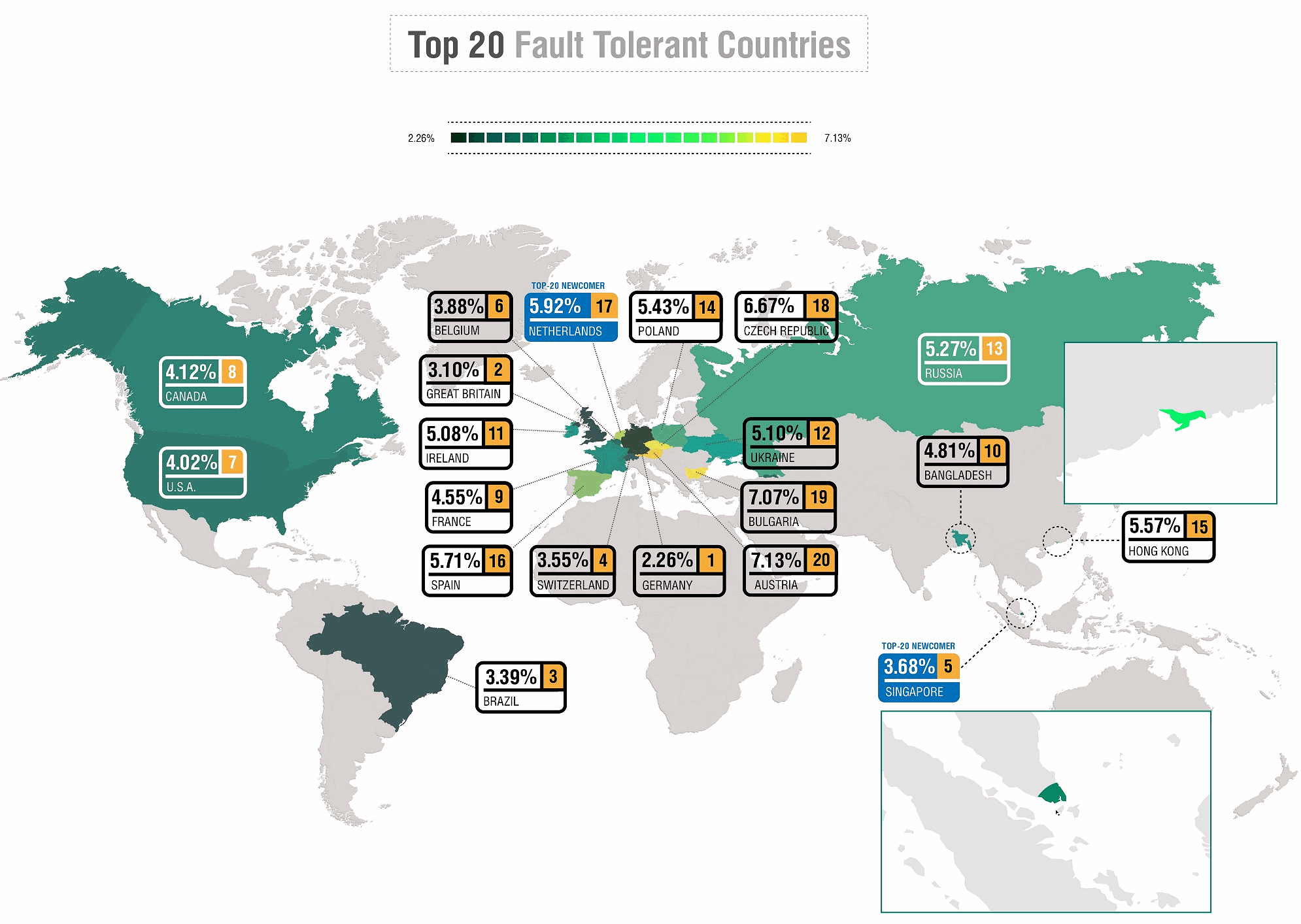Great Britain Ranked 2nd in the World for Internet Fault Tolerance
Great Britain might take a drubbing for its lack of ultrafast pure fibre optic (FTTH/P) broadband ISP infrastructure but a new study by Qrator Labs suggests that at least our underlying internet links appear to be fairly resilient to faults, with England, Scotland and Wales collectively ranking 2nd best in the world.
As a general rule, the more alternate routes a country has for internet traffic to flow along the better. More routes tend to mean greater fault-resistance and stability, particularly if there’s a fair amount of diversity between network operators to help avoid a market becoming too dependent on one dominant player. Most of this is driven by market demand rather than any kind of obligation.
In that sense the new report from Qrator Labs, which is a network security firm, set out to examine the number of routes, quality of those routes (e.g. the quantity and quality of paths to Tier-1 ISPs) and the Autonomous Systems (AS) behind them. The study specifically sought to answer the following question: “What percentage of AS in this region would lose their connectivity with Tier-1 operators, thereby losing global availability?”
Advertisement
One of the reasons for asking this is because more than 45% of ISP’s were found to have only one connection to an upstream transit provider, which is contrary to the original expectation that every non-transit AS would have at least two upstream providers in order to guard against problems if one goes down. Sadly from time to time those transit ISPs do fail.
Overall the study, which has been written up on Noteworthy – The Journal Blog, found that in 2017 the average outage from a single failure was 41% and in 2018 it decreased to approximately 38%. The number of countries that limited outage to less than 10% (indicating fault resistance) increased by one to reach 30. Overall Germany came top with a fault tolerance of 2.26% and they were followed by Great Britain on 3.10%.

The full report goes into a lot more detail and notes some significant weak-points around IPv6 vs IPv4 connectivity, as well as the negative impact caused by disputes between different providers. But spare a thought for those in Uzbekistan, where the researchers observed for the third year in a row a 99.9% dependency on a single AS (28910). Heck even the wealthier climbs of Monaco had a 66% dependency on one AS (6758).
Advertisement
Mark is a professional technology writer, IT consultant and computer engineer from Dorset (England), he also founded ISPreview in 1999 and enjoys analysing the latest telecoms and broadband developments. Find me on X (Twitter), Mastodon, Facebook, BlueSky, Threads.net and Linkedin.
« Cider Helps TrueSpeed Extend 1Gbps FTTP Broadband in Somerset

















































Comments are closed